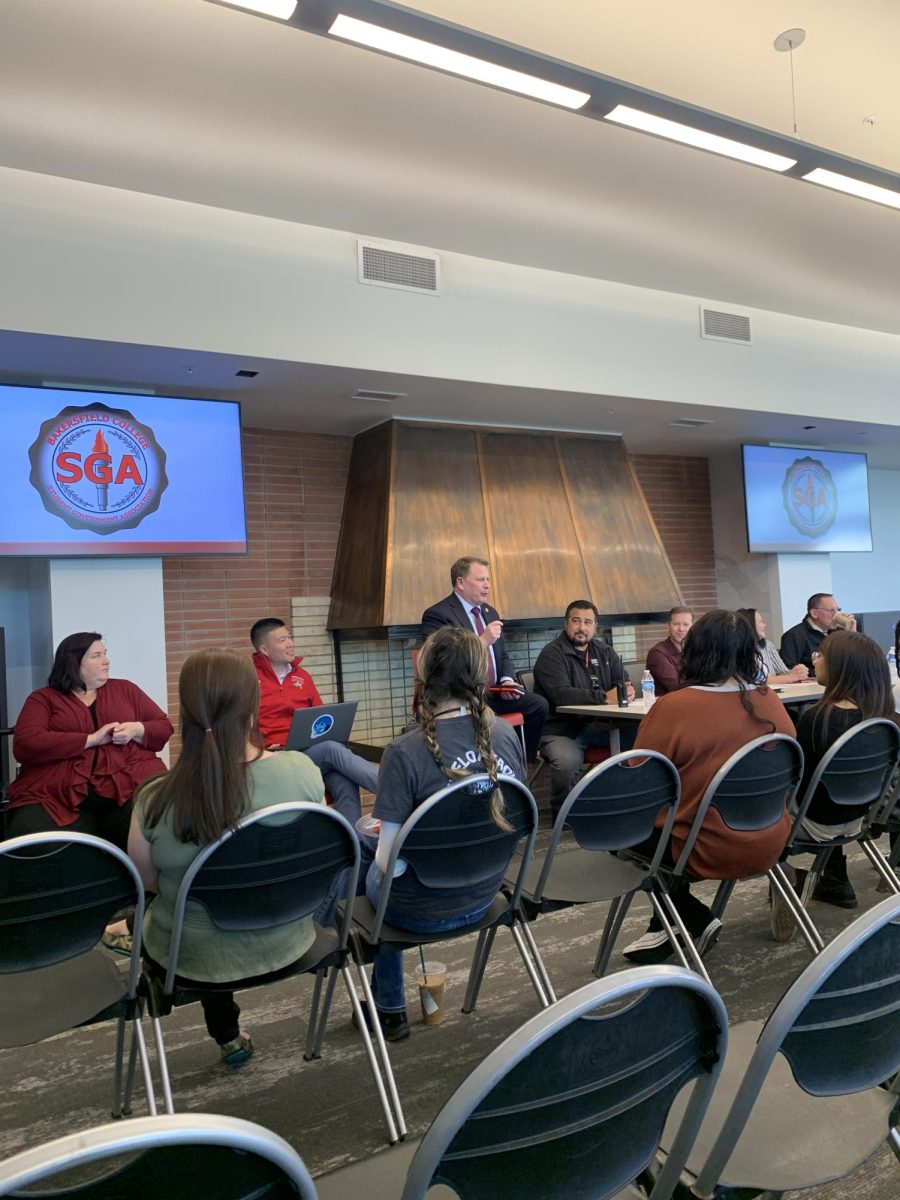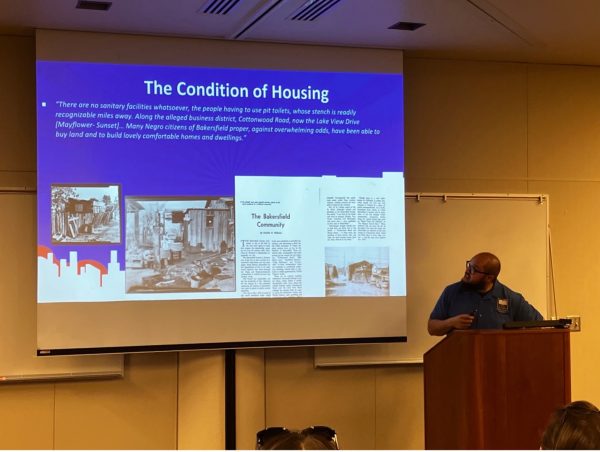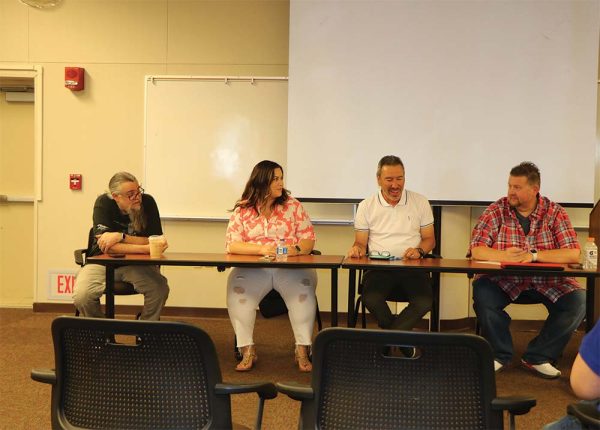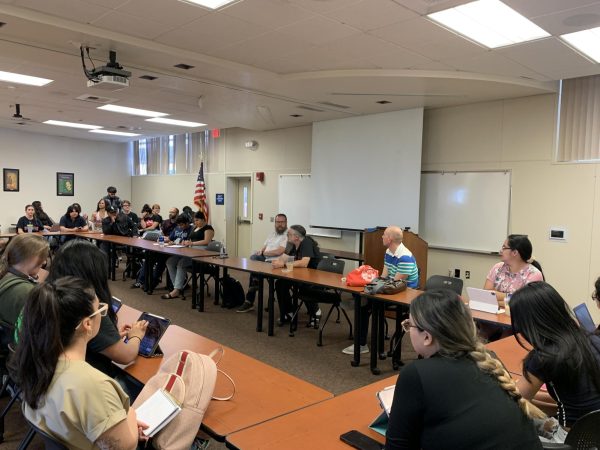Carbon Management Opportunities Impacting Kern County
November 11, 2021
Bakersfield College hosted a webinar as a part of the Ag/Water/Energy Education series which opened with the chancellor of Kern Community College District, Sonya Christian delivering an introduction to the webinar on carbon on Nov. 9.
Speakers from Lawrence Livermore and the Rhodium Group gave presentations on the concept of carbon capture and the unique opportunities that are available for those working with energy in Kern County.
Christian’s opening remarks to Carbon Management Opportunities Impacting Kern County made clear that the information being referenced in the webinar was not just for those who own energy production companies, but those who may be overlooked but should not be devalued.
“There is also the intelligence of our workers, so we need to be tuning into their voices and harness that intelligence,” Christian said.
Christian ended her address by emphasizing the KCCD’s role in furthering scientific development, that the district is “more and more taking on the role of being this applied [research and development] hub for the various sectors, and most notably energy with our established partnership […] with Merced UC School of Engineering, and we are now looking at developing partnerships with renowned research entities.”
Dr. Steve Bohlen of Lawrence Livermore has a background in geology and worked under Governor Brown. He recounted the issues California faces in its endeavor to turn to cleaner energy and covered the topic with clear eyes, “Difficult to decarbonize industries—steel making, agriculture, as just some of the few very difficult to decarbonize industries—cause the state to have additional emissions to manage,” he explained.
Bohlen also succinctly addressed the issue that lies in assuming everyone in the state of California can suddenly switch to using an electric vehicle, “the battery technology which we have currently—it’s nice, lithium batteries are great, for your phone. They’re less great for cars,” he said.
Bohlen also made sure to mention the extreme cost of electric vehicles which are not accessible to everyone. This goes hand in hand with the information he listed that provides background for the infrastructure needed for large-scale carbon storage.
California specifically was named as ideal for carbon storage, which executive vice president of California Resources Corporation explained is not only because of the geology, but the economic incentives available for businesses in the energy industry.
Dr. Emily Wimberger of Rhodium Group also spoke on the economic benefit of energy industries investing in carbon capital through her organization’s research, reviewing at length the various monetary values associated with different investments in the energy industry that are carbon-related such as storage, transport, and infrastructure.
At the close of the webinar Bohlen stated that it is his belief that neither one of the major political parties in the United States are approaching the carbon management issue in the right way, and should both follow the science and technology that supports carbon management. He emphasized that “if the politicians eliminate the production of oil in the state, we’ll just have to import more.”













